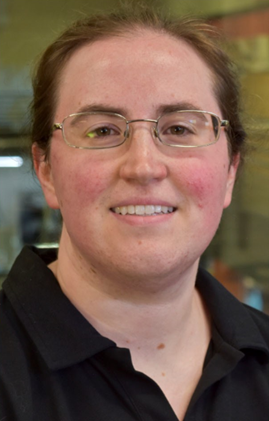DISTINGUISHED SEMINAR (3-4-2021)
Charles Williams3D Printing Functional Materials & Devices
Dr. Michael C. McAlpine, Kuhrmeyer Family Chair Professor, Department of Mechanical Engineering University of Minnesota
Abstract
The ability to three‐ dimensionally interweave biological and functional materials could enable the creation of devices possessing personalized geometries and functionalities. Indeed, interfacing active devices with biology in 3D could impact a variety of fields, including biomedical devices, regenerative biomedicines, bioelectronics, smart prosthetics, and human‐machine interfaces.
Biology, from the molecular scale of DNA and proteins, to the macroscopic scale of tissues and organs, is three‐dimensional, often soft and stretchable, and temperature sensitive. This renders most biological platforms incompatible with the fabrication and material processing methods that have been developed and optimized for functional electronics, which are typically planar, rigid, and brittle. A number of strategies have been developed to overcome these dichotomies. Our approach is to utilize extrusion‐based multi‐material 3D printing, which is an additive manufacturing technology that offers freeform, autonomous fabrication. This approach addresses the challenges presented above by (1) using 3D printing and imaging for personalized device architectures; (2) employing ‘nano‐inks’ as an enabling route for introducing a diverse palette of functionalities; and (3) combining 3D printing of biological and functional inks on a common platform to enable the interweaving of these two worlds, from biological to electronic. 3D printing is a multiscale platform, allowing for the incorporation of functional nanoscale inks, the printing of microscale features, and ultimately the creation of macroscale devices. This blending of 3D printing, functional materials, and ‘living’ inks may enable next‐generation 3D printed devices.
Biography
Michael C. McAlpine is the Kuhrmeyer Family Chair Professor of Mechanical Engineering at the University of Minnesota. He received a B.S. (2000) in Chemistry with honors from Brown University, and a Ph.D. (2006) in Chemistry from Harvard University. His current research is focused on 3D printing functional materials & devices for biomedical applications, with recent breakthroughs in 3D printed deformable sensors and 3D printed bionic eyes (one of National Geographic’s 12 Innovations that will Revolutionize the Future of Medicine). He has received several awards for this work, including the Presidential Early Career Award for Scientists and Engineers (PECASE), and the National Institutes of Health Director’s New Innovator Award.










